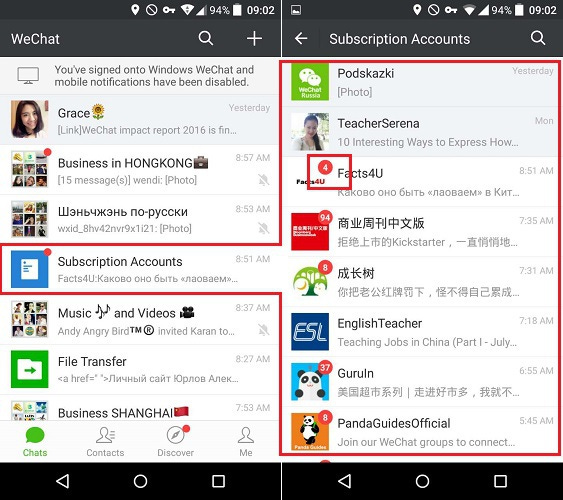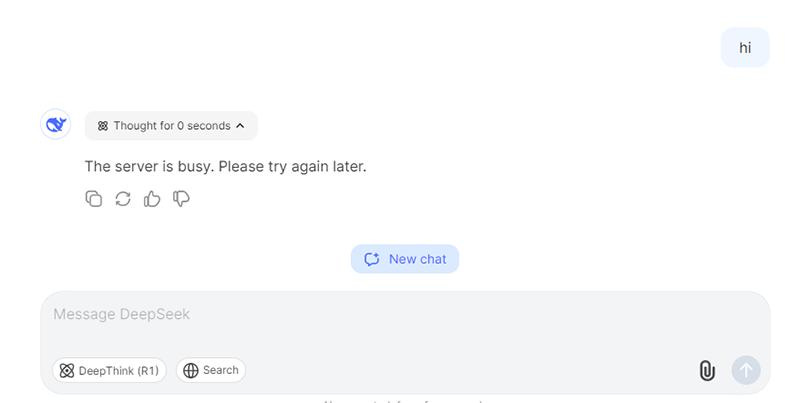Why Tencent's Integration of DeepSeek Into its AI App is a BIG DEAL
China's domestic battle of the consumer-facing AI super app starts now
Hello to you all. Happy Valentine’s <3. Hope you have a good weekend.
Last week, Tencent dropped a big one on the Chinese AI world. Because the news came out on Thursday night, it didn’t pick up much media momentum. But it really could be a big deal. I didn’t want to wait until next week to share my thoughts, so here they are.
Please share, like, and subscribe if you find my analyses useful/ insightful.
TL;DR
Tencent just shook up China’s AI scene by integrating DeepSeek, the country’s top AI model, into its chatbot app Yuanbao (元宝). This makes Yuanbao the first major Chinese chatbot to support external models, giving a kick in the face to competitors like ByteDance’s Doubao and Alibaba’s Qwen.
Why it matters:
Multi-Model Power: Yuanbao combines Tencent’s Hunyuan model with DeepSeek, solving performance issues and boosting user experience.
WeChat Advantage: Tencent leverages WeChat’s massive content ecosystem, creating an AI super app potential.
Fast-Follower Strategy: Tencent’s siloed teams and “copy-then-innovate” culture let them adopt DeepSeek without internal resistance.
DeepSeek’s success seems to have suddenly given ammunition to China’s AI, putting it officially on the global map. ByteDance released an updated version of its flagship AI app, Doubao, with sparse MoE architecture. Only a few days later, on February 6, 2025, Alibaba’s Qwen 2.5 Max was released. Then Baidu announced it would release its Ernie 5.0 model with multi-modal capabilities. Chinese domestic AI competition is on fire.
But I think the real game-changer is Tencent’s mic drop. After staying hush-hush while the rest of the big tech companies tried to out-bling each other, Tencent came out with a disruptive app that has the potential to become a killer app.
This past Thursday, it announced that it has integrated DeepSeek into its own, much-unnoticed AI chatbot app, Yuanbao (元宝, which literally means “gold nugget” in Chinese). It would be as if ChatGPT decides to integrate Gemini models besides OpenAI’s models.
What makes it so meaningful is that Yuanbao is the first chatbot app backed by a major Chinese tech company that supports models other than its proprietary model. Before DeepSeek, Yuanbao only supported Tencent’s internally developed LLM, Hunyuan (混元), just like Doubao only supported ByteDance’s own LLM.
Why do I think this is a significant development? Let me explain my thinking:
Tencent Yuanbao’s Advantages
A. Uniquely positioned to be multi-models
I wrote before that one of the key advantages of “GPT wrappers” like Perplexity is that it can use multiple LLMs, each for what they are best at (for example, use Claude 3.5 for coding, use OpenAI o3 for reasoning). On the other hand, OpenAI would not open up its ChatGPT to other models, including Claude, Gemini, or DeepSeek. In Tencent’s case, before DeepSeek, its Hunyuan model has been the least competitive out of the Chinese big techs, which made its app Yuanbao the least competitive (who has heard of Yuanbao before today? If you read my pieces before would have known that Doubao has been the dominating consumer-facing AI app in China).
If we just look at LLM capabilities, Alibaba’s Qwen has been leading, with ByteDance’s Doubao trailing behind and then Baidu’s Ernie. By integrating DeepSeek’s R1, which arguably leapfrogged Alibaba and became the best LLM in China today, Yuanbao’s capability and user experience suddenly became a top-notch product.
You may ask, I saw that DeepSeek has become the number one downloaded app globally, so why can’t people just use DeepSeek directly? That is because the demand for DeepSeek is so high that the company has been having trouble keeping up. Frequent users of DeepSeek would know that very often, DeepSeek will tell you that “servers are busy, please try again” as they are not able to serve all the inference demand. As a result, user experience in DeepSeek has been very inconsistent, and I would not be surprised to see if the users churn out quickly (even when I got impatient and just went back to Perplexity).
Now, DeepSeek’s inconsistent capability to keep up with demand does not affect users that use DeepSeek via Perplexity, which hosts DeepSeek’s model in the U.S. Which has done an incredible job of increasing its DeepSeek inference servers to keep up with the demand (its CEO mentioned that it was doubling servers for DeepSeek every day).
However, in China, there are no major venture-backed wrapper companies like Perplexity. Big tech firms’ chatbot apps only support their own proprietary models. This gave Tencent an opportunity to re-vamp Yuanbao as a “DeepSeek wrapper”. As the inference demand on Yuanbao will be served by Tencent cloud, Yuanbao can offer DeepSeek’s model capability with far more consistency, which should allow it to acquire a large number of users quickly. We will go over in a later section why, among all the big tech firms, Tencent is able to host external models alongside its proprietary model.
B. Walled garden content/data
Just like how Google Gemini prides itself on crawling and scraping YouTube’s data better than others and providing the most comprehensive research, leveraging its access to all the data under the Google sun. Yuanbao’s competitive advantage here is its full access to content within the WeChat ecosystem. And I’m not talking about your chit-chat history with your parents. In China, WeChat is beyond just a messenger app; its content features are similar to a combination of X and LinkedIn, where users generate many long-form and short-form content. In fact, there are over 20 million self-run content accounts on WeChat as of 2023, based on online estimates.
That means that Tencent can access billions of articles and videos circulated on WeChat. If you were to use Baidu Search (China’s Google), you would not easily find articles published within WeChat. Such data and content advantage, now coupled with the most frontier model, DeepSeek, should allow Yuanbao to offer a superior experience.

C. Functional adjacency
A third advantage, although quite subtle, that Tencent has is user intuition. As mentioned before, WeChat is not just a messenger app, but it also has a lot of content with an embedded search engine within WeChat. Users already use the search bar at the top of the app for news, tutorials, and even direct links to other programs: some called “mini-programs,” which are APIs plugged in from other apps. So, for an AI chatbot to be embedded into WeChat as a new chat window or search engine makes complete sense to users.
In comparison, its main domestic consumer-facing competitor, Doubao, wouldn't have such “functional adjacency” right now. ByteDance’s main app, Douyin (China’s version of TikTok) and Doubao, have little “synergy” in user experience. It’ll be a weird situation where you’re scrolling through 20-second videos and suddenly want to switch to an AI platform to look up something. It's not completely unlikely, just not as seamless of a transition of all being embedded into one app - and, to my points before, an AI SuperApp.
Functional adjacency refers to the degree to which a new feature or functionality is contextually aligned with the primary purpose or use case of an application. When users associate an app with a specific function, their expectations are shaped by that core purpose. Features that align closely with this primary function feel more "natural" to users, while those that deviate significantly may face adoption challenges.
[A minor comment: Yuanbao’s main interface is quite clean, like ChatGPT, but it allows you to zoom out of the window and go to a page with various “specialized” apps for different purposes (similar to the App Store on iOS). The multi-app format is similar to what Doubao has so far. See here for more on China’s AI app strategy.]
Okay, that’s my take on why Yuanbao has the potential to be a massive win for Tencent. Below is my take on why Tencent is the only big tech that is doing this. How was this possible? Why would Tencent allow Yuanbao not to be a loyalist to Hunyuan LLM?
Tencent’s Unique Culture
A. Internal competition and departmentalism could have its benefits
It is widely known to China tech insiders that within Tencent, the internal teams work in silos (山头主义, or “departmentalism”) and the company has always been notorious for its internal-competition (赛马, or “horse-racing”) culture.
When ByteDance sets clear, top-down objectives to develop the best AI app, Doubao, everyone is expected to work together to achieve this goal. The internal LLM team would work closely with the Doubao team.
Tencent, on the other hand, has their different businesses in silos. WeChat is one separate team (WeChat’s HQ is in Guangzhou, while the Tencent HQ is in Shenzhen, nearly 90 miles apart). Tencent’s LLM Hunyuan is from a separate team. Yuanbao is from another team.
One consequence of different teams working in silos is that they do not leverage the entire firm’s resources and advantages. For example, Tencent’s ads business has much lower conversion and monetization rates than competitors like ByteDance and Kuaishou, despite having the most personalized data on users from WeChat. The reason is that WeChat is run like a separate business within Tencent. Some in the industry even say that the WeChat team is not sharing its full data with the Tencent ads team. Can you imagine Meta’s ads team not having full access to Instagram and Facebook data?
Back to AI. Rather than having all teams working together to develop its frontier LLM and AI products, Tencent’s LLM Hunyuan has been developed in silo, and in many ways unnoticed and not very impactful. Hence, when DeepSeek came out, the separate Yuanbao team could independently decide to integrate DeepSeek’s model in its products without caring too much about internal politics and “hurting the Hunyuan team’s feelings”. Departmentalism has its benefits sometimes.
B. Roots in fast-following
Another unique thing to Tencent is that it is often not the innovator but a very strong fast-follower. It would wait for competitors to battle it out at the frontlines, watch the winners come out one-by-one with their proven strategies, and then strike with fast copying.
In fact, today, Tencent's crown jewel, WeChat, is a result of its fast following. In 2007, China’s state telecom, China Mobile, launched a messenger app called Feixin, which was gaining traction. In 2011, when Feixin's “winning formula” matured, Tencent rolled out a copycat, WeChat (Weixin), which eventually took over the whole market.
Another example is Alibaba, which launched its payment app, Alipay, in 2004. In 2013, Tencent launched WeChat Pay, which is a payment app integrated into WeChat. Despite being late to the game, WeChat Pay leveraged WeChat’s massive distribution reach to become China’s number two payment app quickly.
Once more, ByteDance’s Douyin was released in 2016, and Tencent launched its copycat WeChat Video Account in 2020. Again, leveraging WeChat’s massive reach, it is now China’s number two short-video app.
You get my point.
You can say Huanyuan is another attempt to compete with ByteDance’s Doubao, which has shown the potential to become the first killer AI app in China. If Tencent could leverage DeepSeek’s model to displace Doubao, it would be the most “Tencent” thing everrr.
Tencent is a perfect example of what Uber founder Travis Kalanick said: many Chinese tech companies were extremely good at copying and copying, then innovating.
But what’s so impressive with Tencent is that they’ve always been able to be #1 or #2 in whatever they do (copy). In gaming, they are the largest gaming distributor globally. WeChat, its super app, is the most used app in the country by far. Basically, in everything else they do (copy), they’ve gotten to the 2nd place, and they have been okay with that. I mean, you don't need to be a winner at everything.
Parting Words
We have discussed the many ingredients for Yuanbao’s potential success (the DeepSeek model, walled garden data/content, and functional adjacency) and why Tencent’s unique culture has played a key role in cultivating Yuanbao.
Now, the question is: Will the Yuanbao app actually take off (like how DeepSeek has become the number-one downloaded app in more than 140 countries)?
If it does, will Tencent formally integrate Yuanbao into WeChat, making itself China’s AI super app (like Meta aims to integrate Meta Assistant into Facebook, Instagram, and WhatsApp)?
Or, alternatively, if not through Yuanbao, would WeChat directly integrate DeepSeek and embed an AI chatbot into its functions? Given the departmentalism culture, this is probably the most likely scenario.
Looking forward, it will also be interesting to see how the arms race plays out and whether ByteDance’s Doubao will soon integrate DeepSeek models to remain competitive with Yuanbao. Yes, clearly, ByteDance wants to use its own LLM, but when faced with competition, maybe keeping Doubao as the number-one AI app in China is more important.
One thing we know for sure is that, thanks to DeepSeek’s open-source model, the Chinese domestic AI race is on — like, really on.
See follow-up analysis of DeepSeek’s integration into WeChat directly: Integration at the Speed of Light: Tencent's WeChat Embeds DeepSeek
Appendix: For the sake of the Chinese domestic AI race, in case you were getting lost with the various apps and how they’re all related. Let’s just look at these three big tech ecosystems. The three companies below make up the BAT: ByteDance/Alibaba/Tencent.








Very helpful article. Thank you!
Thanks for sharing.
This very interesting. Tenecent has a the ability to launch an operator like functional on phone too if the integration works well. I am curious if it's not launched then why? Is there a chance of canbalization of their own apps store or business? Or may be it's on road map